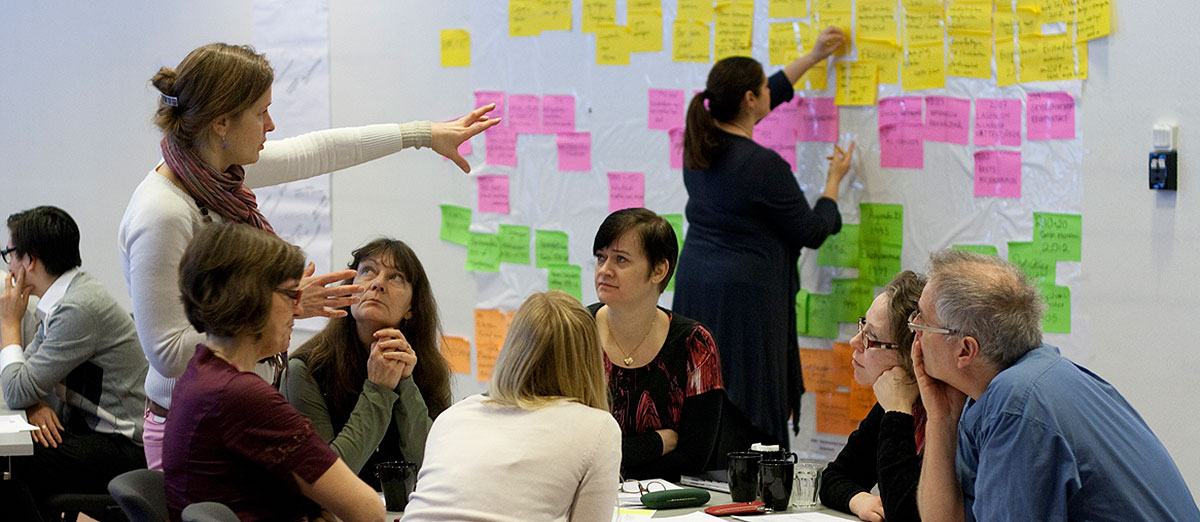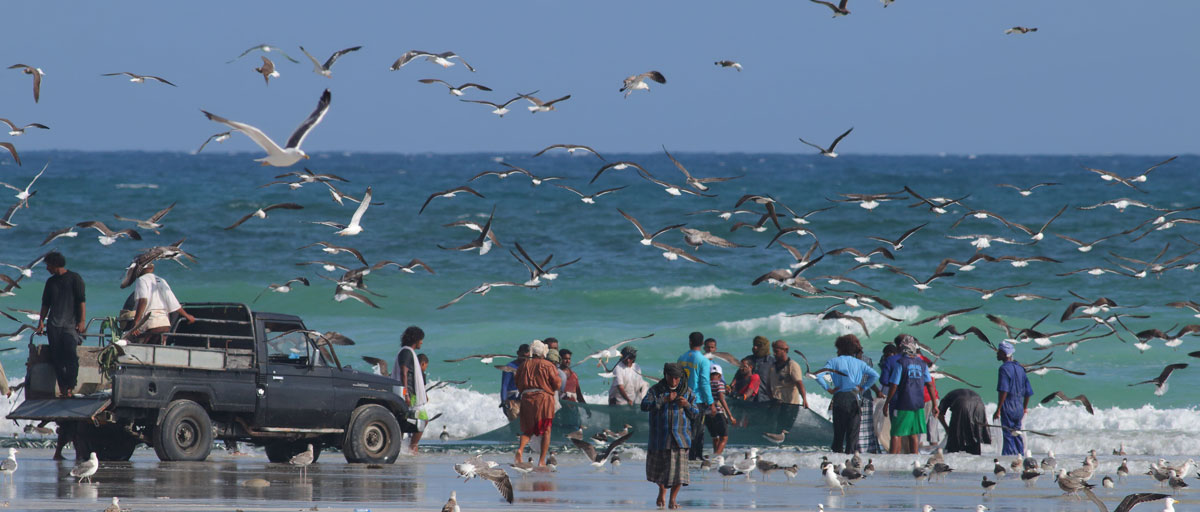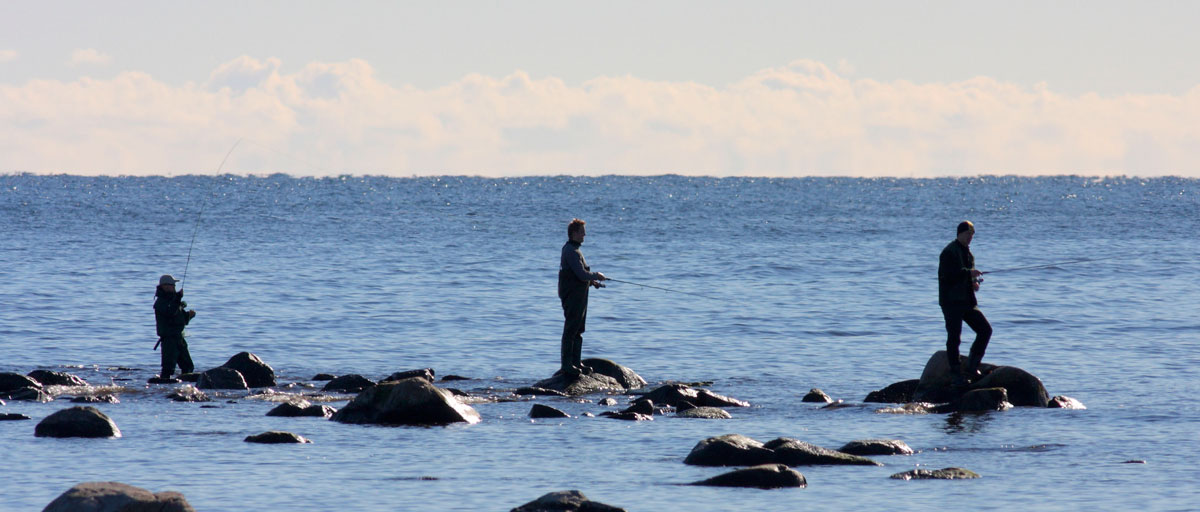Explaining core concepts
Reconnect to the biosphere

Too many of us seem to have forgotten that our economies and societies are fundamentally integrated with the planet. Ecosystems provide us with a hospitable climate, clean water, food, fibers and numerous other goods and services. Photo: A. Belliappa
- The biosphere is the thin sphere around the planet which supports all life on
Earth. - It provides life-supporting ecosystems that provide us with
a hospitable climate, clean water, food, fibers and numerous other goods and services - It is time for a shift in perception – from people and nature seen as
separate parts to interdependent social-ecological systems
Why we have to stop considering nature and the environment as something separate from society
The social-ecological approach and the concept of ecosystem services, the benefits humans derive from ecosystems, have been key in the research of the centre since its inception.
Why? Because in our globalized society, there are virtually no ecosystems that are not shaped by people and no people without the need for ecosystems and the services they provide. People and nature are truly intertwined in what we refer to as social-ecological systems.
Economies and societies are fundamentally integrated with what is called the biosphere, the thin sphere around the planet which supports all life on Earth. This includes the life-supporting ecosystems that provide us with a hospitable climate, clean water, food, fibers and numerous other goods and services.
However, this integration is often not reflected in either policies or human behavior.
A biosphere shaped by humans
Globalization is one explanation for the disconnection between humans and nature. During the last 200 years, and particularly after World War II, economic development, international collaboration, technical and social innovation, improved health and wealth have all contributed to boost the standard of living for most people.
Within the same period of time, the Earth’s ecosystems have started to show signs of fatigue, not only at local levels, but also at larger geographical scales. More than half of the planet’s ecosystem services that support human well-being have been assessed as being degraded or used unsustainably.
Scientists argue that have we entered an era called the Anthropocene, a geological epoch where humans shape every aspect of the biosphere. There are now so many of us, connected throughout the world, operating at a fast pace that we are altering the way the biosphere functions. The pervasive scale of human impact on ecosystems is limiting the prospects for getting ecosystem services from regions with more resilient production systems.
This 3-minute journey takes you through the last 250 years from the start of the Industrial Revolution to today.
Carl Folke, Scientific Director at the Stockholm Resilience Centre says he is "embarrassed as a human that we have in two generations created mindsets where we consider us independent of the biosphere".
Instead, we need to understand that nature and the environment is not something you can chose to like or not, it is the very fundament for our existence.
"Too many consider environmental issues to be an obstacle for development. But the conflict between financial growth and ecological sustainability is nothing but a mental construction"
Carl Folke, science director Stockholm Resilience Centre
Integrating food, health and sustainability
We are putting extreme pressure on the Earth's climate and ecosystems. Take food production for instance. Agriculture alone occupies more than 35% of Earth's terrestrial surface, the largest use of land on the planet, yet an estimated 33% of global food production is wasted. That is a depressing reflection of our unsustainable production and consumption pathways.
Despite clear indications that much of society is disconnected from the biosphere, there are also clear signals that we are in the middle of a renaissance in how individuals relate to the environment. There is a growing acknowledgement that unhealthy food habits, obesity, food-related non-communicable diseases and chronic malnourishment affects our planet. This has also resulted in new science-policy-practice initiatives such as EAT Stockholm Food Forum, an international consortium of government, world leading universities and research institutions, philanthropic foundations, non-government actors and organisations, and companies all committed to collectively address the issues of food, health and sustainability.
In a world committed to feeding a population of nine billion people by 2050, how can we better govern all the services that lay the very foundation for what we eat? Governing complex social-ecological systems requires an institutional ability and enthusiasm to deal with, adapt to and shape sudden changes. This requires a move from rigid sector-based resource management to more adaptive ecosystem-based management.
Centre director Johan Rockström on how we can feed nine billion people within the planetary boundaries.
Adaptive governance
Research suggests that flexible social networks and organisations built on adaptive learning are in a better position to sustain and manage ecological systems. Adaptive governance approaches must be able to coordinate relevant actors at multiple scales and are increasingly appearing at regional and global level.
The wetlands of Kristianstad in southern Sweden is considered one of the world’s best examples of how relationships between people and nature can work. Stretching some 105,000 hectares, Kristianstad Vattenrike is a result of a bottom-up initiative that since the start in 1989 has implemented ecosystem management in Sweden. Conflicts of interests have been turned into adaptive governance where municipalities, businesses, farmers collaborate with bird-watchers and eco-tourism, and the effort has become a part of the local economy and identity.
Examples of adaptive governance can also be found on an international level, with global collaboration and measures taken to curb illegal and unregulated fisheries in Antarctic waters. When collaboration between states stalled because of political sensitivity, NGOs and the fishing industry mobilised forces, which eventually reduced illegal and unregulated fishing considerably.
See animation describing how the illegal fisheries in the Antarctic has been reduced over the years.
Mental change
To reconnect the human mind to the biosphere, there’s the need for a mental change.
It is time to realise that societies and economies are integral parts of the biosphere and start working on more adaptive ways of governing our natural capital, not for the sake of the environment only, but for our own development. Poverty alleviation and future human development cannot take place without a wider recognition of nature’s contribution to our well-being, health and security.
It is time for a shift in perception – from people and nature seen as separate parts to interdependent social-ecological systems. Reconnect.
READ MORE
SCIENTIFIC ARTICLES
Folke, C., Jansson, Å., Rockström, J., Olsson, P., Carpenter, S., Chapin, F., Crépin, A.S., Daily, G., Danell, K., Ebbesson, J., Elmqvist, T., Galaz, V., Moberg, F., Nilsson, M., Österblom, H., Ostrom, E., Persson, Å., Peterson, G., Polasky, S., Steffen, W., Walker, B., Westley, F. (2011) Reconnecting to the Biosphere. AMBIO, 0044-7447. Doi: 10.1007/s13280-011-0184-y
Will Steffen, Åsa Persson, Lisa Deutsch, Jan Zalasiewicz, Mark Williams, Katherine Richardson, Carole Crumley, Paul Crutzen, Carl Folke and Line Gordon, et al. 2011. The Anthropocene: From Global Change to Planetary Stewardship. Ambio 0044-7447. Doi: 10.1007/s13280-011-0185-x.
Liu, J., T. Dietz, S.R. Carpenter, M. Alberti, C. Folke, E. Moran, A.C. Pell, P. Deadman, T. Kratz, J. Lubchenco, E. Ostrom, Z. Ouyang, W. Provencher, C.L. Redman, S.H. Schneider, W.W. Taylor. 2007. Complexity of Coupled Human and Natural Systems. Science 317:1513-1516
Carpenter, S.R., C. Folke, A. Norström, O. Olsson, L. Schultz, B. Agarwal, P. Balvanera, B. Campbell, J.C. Castilla, W. Cramer, R. DeFries, P. Eyzaguirre, T. Hughes, S. Polasky, Z. Sanusi, R. Scholes, and M. Spierenburg. 2012. Program on Ecosystem Change and Society: An international research strategy for integrated social-ecological systems. Current Opinion in Environmental Sustainability 4:134-138.









